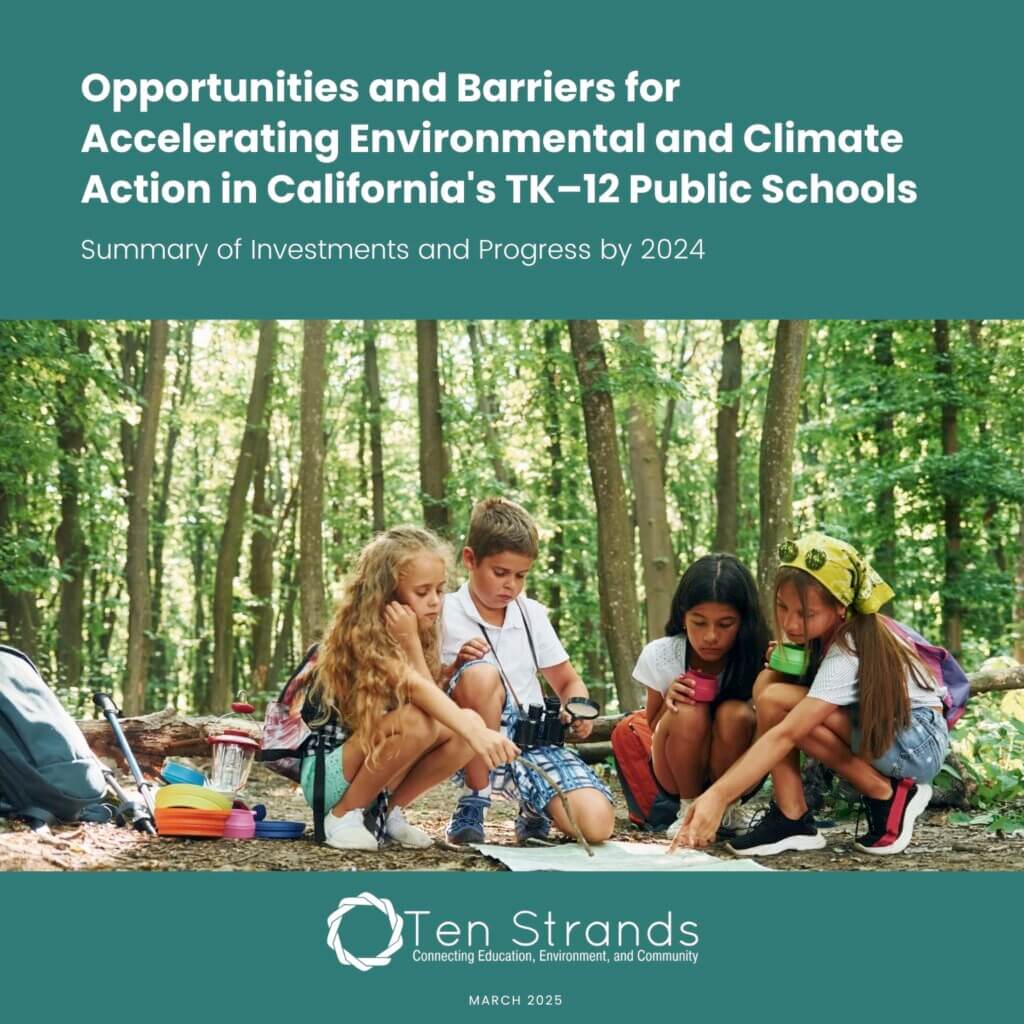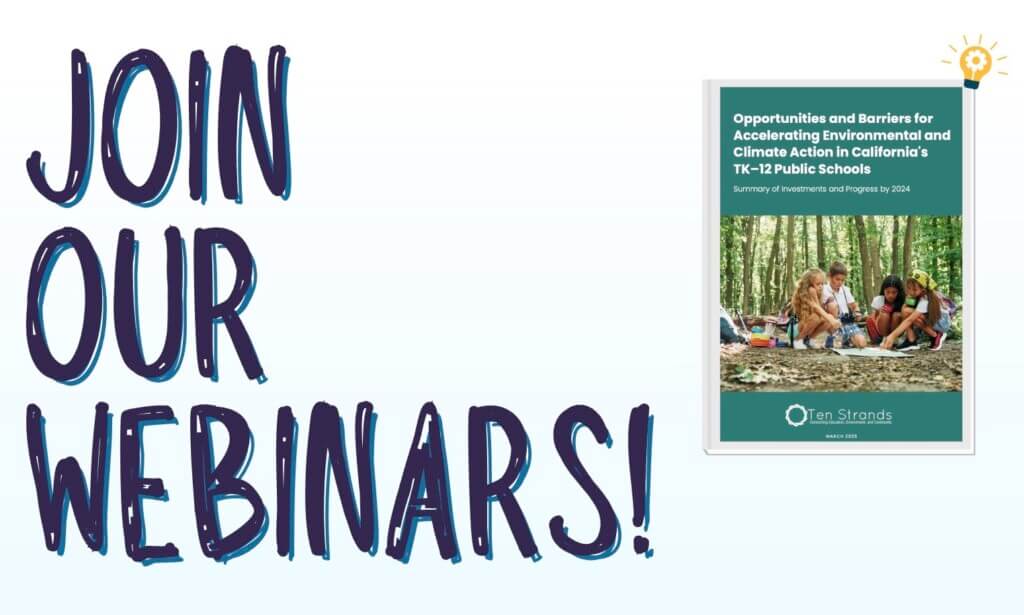The environmental literacy and sustainable and climate-resilient schools movement in California is transitioning between laying foundational elements for broad-scale change and moving toward taking implementation to scale in every school across California.

Ten Strands is excited to share a new report from the Data Initiative for Environmental and Climate Action in California’s TK–12 Schools.
This initiative and companion report provide educational leaders with interactive tools to visualize data on scale, equity, context, and progress in environmental and climate action across campus, curriculum, community, and culture. It supports data-informed decisions to advance climate action in California’s TK–12 schools.
Read the Executive Summary

Ten Strands hosted two webinars to unveil the groundbreaking new report from our very own Data Initiative for Environmental and Climate Action in California’s TK–12 Schools!
The webinars took place on April 15 and 16 where participants explored the report’s findings and learned how to apply them at both broad and local levels. The report equipped educational leaders and changemakers with interactive tools and data-driven insights to advance environmental and climate action in school communities.
The recordings are available below.
April 15, 1PM - 2PM
Audience: Educational Leaders
Focus: Supporting educational leaders in utilizing report findings to catalyze broader-scale action at the county, regional, or state-wide level.
April 16, 4PM - 5PM
Audience: Grasroots Leaders
Focus: Supporting students, teachers, and community-based partners in utilizing report findings to drive local-level environmental and climate action.

The Data Initiative for Environmental and Climate Action in California’s TK–12 Schools helps provide an understanding of the scale of California’s TK–12 education system, issues related to equity and need, and establishes baseline data for tracking and measuring indicators of progress on environmental and climate action in all of California’s TK–12 schools. The database also provides context about potential broader factors within municipal and county jurisdictions that might be considered barriers or opportunities to advancing forward progress.
Foundational components include buy-in at the grassroots and decision-making level, policy change, early implementation pilot investments and projects, cohesion of state-wide networks, etc. During this scaling implementation stage, it is critical to use an equity-informed, data-driven approach to accelerate advancement, with the intention of prioritizing those who have been the most underserved and those who are experiencing the most environmental injustice.
The data will inform decision-making, policy change, early implementation pilot projects, and create cohesion of state-wide networks. Our intent is to catalyze and strengthen investments in school communities’ environmental and climate initiatives from the grassroots level on up. The data initiative will also be used by Ten Strands and other partners to identify where technical assistance support services can be enhanced to support districts and county agencies.
The data in this initiative can be used in a number of strategic ways that include, but are not limited to:
- Statewide Analysis: The data supports research, policy, and advocacy efforts as it provides patterns and trends of action and inaction, and it shows to what extent action is taking place in regions with those who are most marginalized or experiencing the highest levels of environmental injustice. The data initiative also provides vital information about supportive context indicators that may be critical for catalyzing and institutionalizing environmental change. Additionally, it can be used to analyze where strategic investments can be made to spur environmental action at schools and beyond.
- Local Implementation: The data included in this project are also useful for local implementation. They help to identify entry points to further engage school communities with environmental and climate action and can identify potential regional partnerships.
This data initiative will serve as a leverage point across the state to identify the current conditions for advancing a whole systems approach to whole school sustainability and increasing climate literacy.


